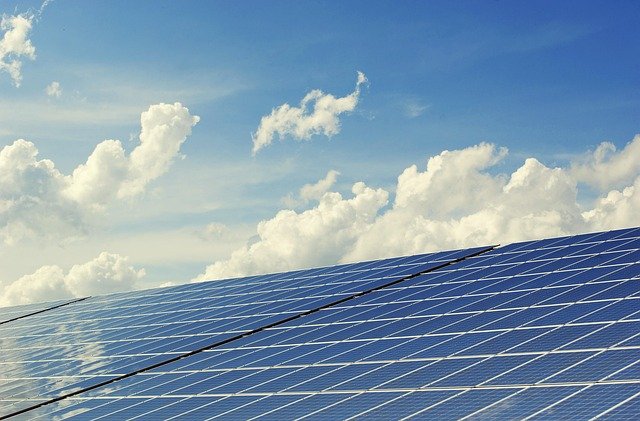Explore the Solar Panel Industry
Discover the growing solar panel industry and its critical role in advancing sustainable energy solutions. Learn about the skills, technologies, and innovations shaping the future of solar energy, and gain insights into how this industry contributes to global environmental efforts.

The solar panel industry represents a convergence of technology, environmental science, and economic opportunity. As the world increasingly recognizes the urgency of climate action, solar energy has positioned itself as a leading solution for clean power generation. The sector encompasses manufacturing, installation, maintenance, research, and policy development, creating a diverse ecosystem of professional opportunities.
What Essential Skills Are Needed for Working in the Solar Panel Industry?
Success in the solar panel industry requires a combination of technical expertise and soft skills. Technical knowledge forms the foundation, including understanding photovoltaic systems, electrical engineering principles, and energy storage technologies. Professionals need proficiency in reading blueprints, understanding electrical codes, and working with specialized installation equipment. Safety training is paramount, as workers often operate at heights and with high-voltage systems.
Beyond technical abilities, problem-solving skills prove invaluable when troubleshooting system issues or optimizing installation designs. Communication skills help professionals explain complex concepts to clients and collaborate with diverse teams. Project management capabilities become essential for those coordinating installations or overseeing large-scale solar farms. Additionally, staying current with evolving technologies and regulations through continuous learning ensures long-term career success in this rapidly advancing field.
How Does Solar Energy Benefit the Environment?
Solar energy delivers substantial environmental advantages that extend far beyond simple carbon reduction. Unlike fossil fuel power generation, solar panels produce electricity without emitting greenhouse gases, air pollutants, or toxic substances during operation. A typical residential solar system can offset approximately 100 tons of carbon dioxide over its 25-year lifespan, equivalent to planting thousands of trees.
The technology also conserves precious water resources. Traditional power plants consume enormous quantities of water for cooling, whereas solar photovoltaic systems require virtually no water during electricity generation. This characteristic makes solar particularly valuable in water-scarce regions. Furthermore, solar installations can coexist with agriculture through agrivoltaic systems, where panels provide shade for crops while generating power. The reduction in air pollution from widespread solar adoption translates directly into improved public health outcomes, decreasing respiratory illnesses and related healthcare costs.
What Trends and Technologies Are Shaping the Solar Panel Sector?
The solar panel sector continues evolving through breakthrough innovations and emerging trends. Bifacial solar panels, which capture sunlight from both sides, have gained significant market traction by increasing energy yield by 10-30 percent compared to traditional panels. Perovskite solar cells represent another frontier, promising higher efficiency rates and lower manufacturing costs, though commercial viability remains under development.
Energy storage integration has become increasingly critical, with battery systems allowing solar power to be available even after sunset. Smart inverters and artificial intelligence now optimize system performance in real-time, predicting maintenance needs and maximizing energy production. Building-integrated photovoltaics, where solar cells are incorporated directly into construction materials like windows and roofing tiles, blur the line between architecture and energy generation. Floating solar farms on reservoirs and offshore installations are expanding the geographical possibilities for solar deployment, particularly in land-constrained regions like the Netherlands.
What Different Roles Exist Within the Solar Panel Industry?
The solar panel industry encompasses a wide spectrum of professional positions across multiple disciplines. Installation technicians form the frontline workforce, physically mounting panels and connecting electrical systems. These professionals typically complete specialized training programs and may pursue certifications to demonstrate competency.
Sales and project development specialists identify opportunities, design systems, and guide customers through the adoption process. Engineers work on system design, grid integration, and developing next-generation technologies. Quality assurance inspectors ensure installations meet safety standards and performance specifications. Operations and maintenance technicians monitor system performance and conduct repairs throughout the operational lifespan.
Beyond field positions, the industry requires supply chain managers, policy analysts, financial analysts specializing in renewable energy investments, and researchers advancing solar technology. Marketing professionals help educate the public about solar benefits, while regulatory compliance specialists navigate the complex landscape of permits and incentives. This diversity of positions means individuals with varied backgrounds and skill sets can find meaningful work contributing to the solar revolution.
How Does the Solar Panel Industry Contribute to Sustainability?
The solar panel industry serves as a cornerstone of global sustainability efforts by providing clean, renewable energy that reduces dependence on finite fossil fuel resources. Each megawatt of solar capacity installed displaces electricity that would otherwise come from carbon-intensive sources, directly contributing to climate change mitigation targets established in international agreements.
Economic sustainability intertwines with environmental benefits. Solar energy creates local employment opportunities that cannot be outsourced, strengthening community resilience. The decentralized nature of solar power enhances energy security by reducing vulnerability to supply disruptions and price volatility associated with imported fuels. In the Netherlands, where renewable energy targets are ambitious, the solar industry plays a crucial role in achieving national climate commitments.
The industry also drives circular economy principles through recycling programs for end-of-life panels, recovering valuable materials like silicon, silver, and aluminum. Manufacturers increasingly focus on sustainable production methods, reducing the energy and resource intensity of panel manufacturing. This holistic approach ensures that solar energy remains genuinely sustainable throughout its entire lifecycle.
The solar panel industry stands at the intersection of environmental necessity and economic opportunity. As technology advances and costs continue declining, solar energy becomes increasingly accessible and efficient. The sector offers diverse positions requiring varied skill sets, from hands-on technical work to strategic planning and innovation. For those seeking meaningful work that contributes to a sustainable future, the solar panel industry presents compelling opportunities. The environmental benefits are clear and measurable, while the ongoing technological evolution ensures this field will remain dynamic and relevant for decades to come. As the Netherlands and other nations accelerate their renewable energy transitions, the solar panel industry will continue expanding, creating new possibilities for professionals committed to building a cleaner, more sustainable world.




